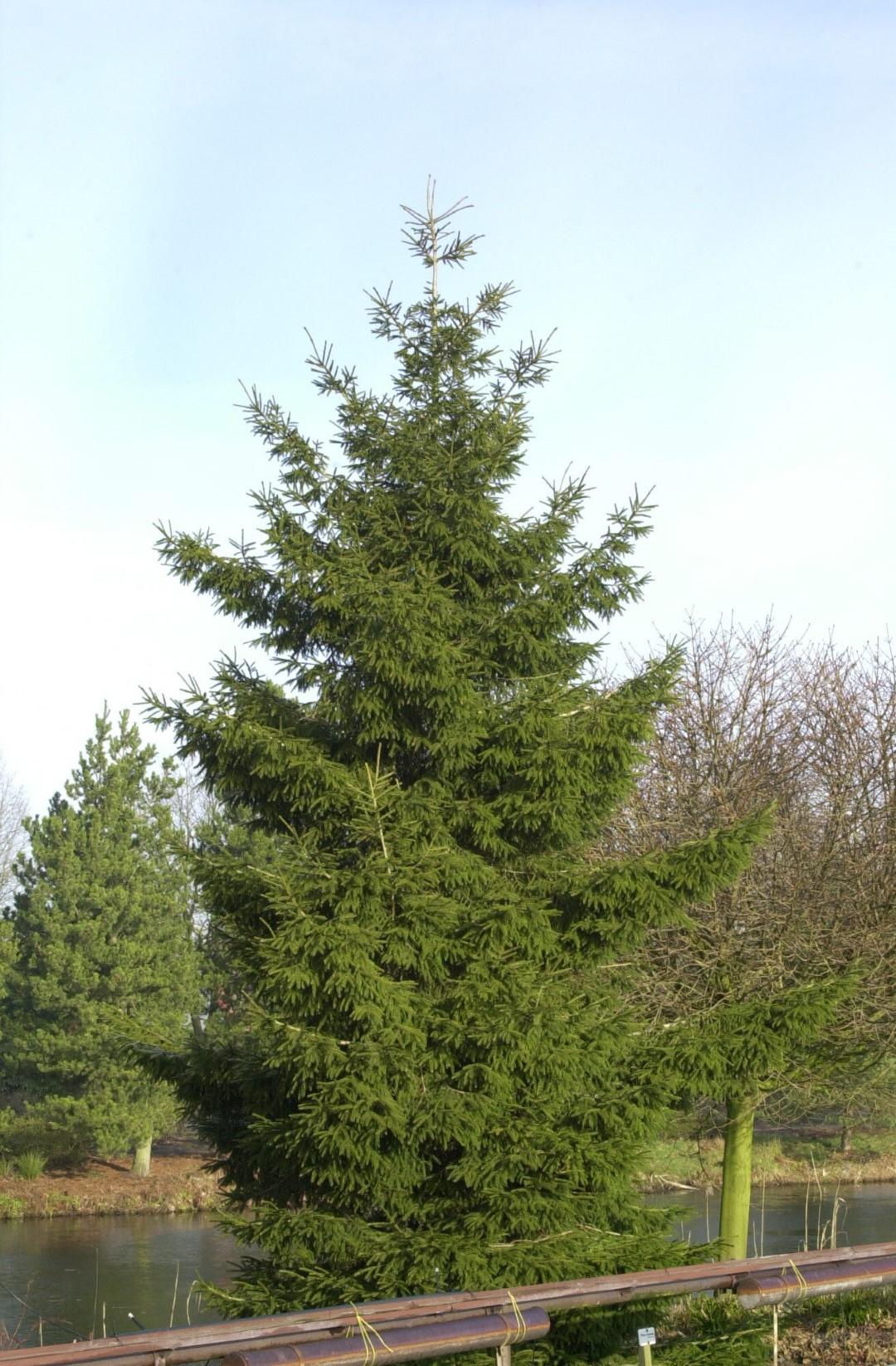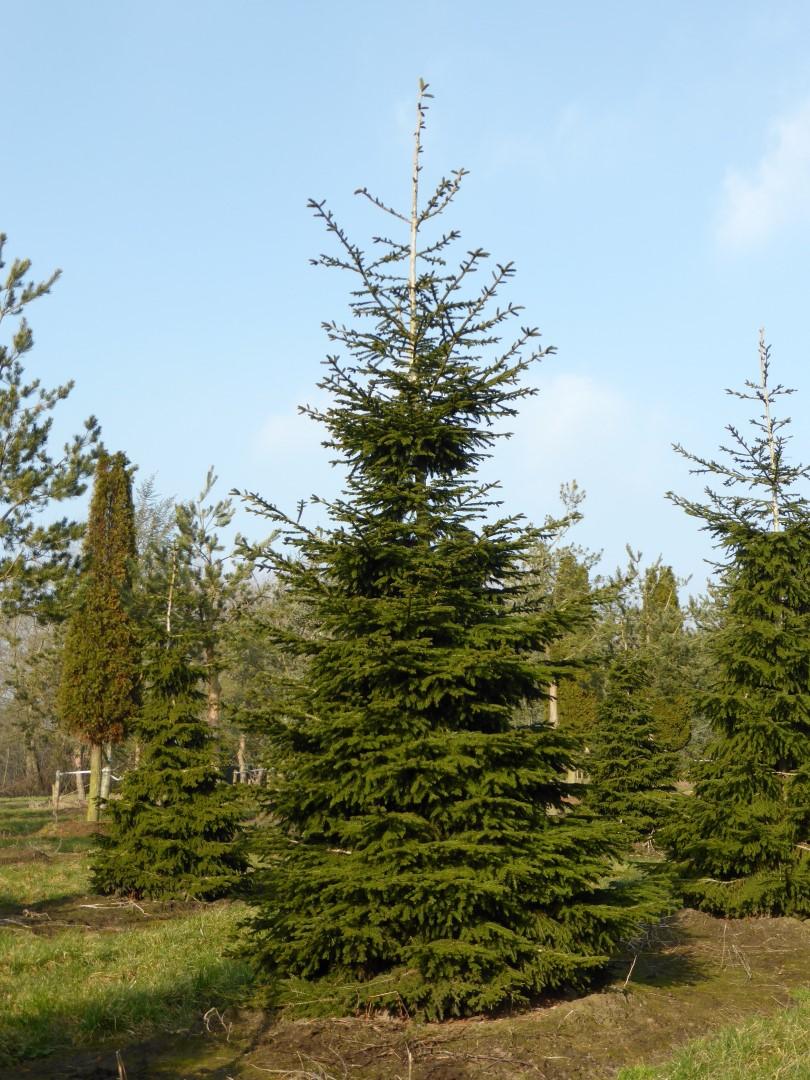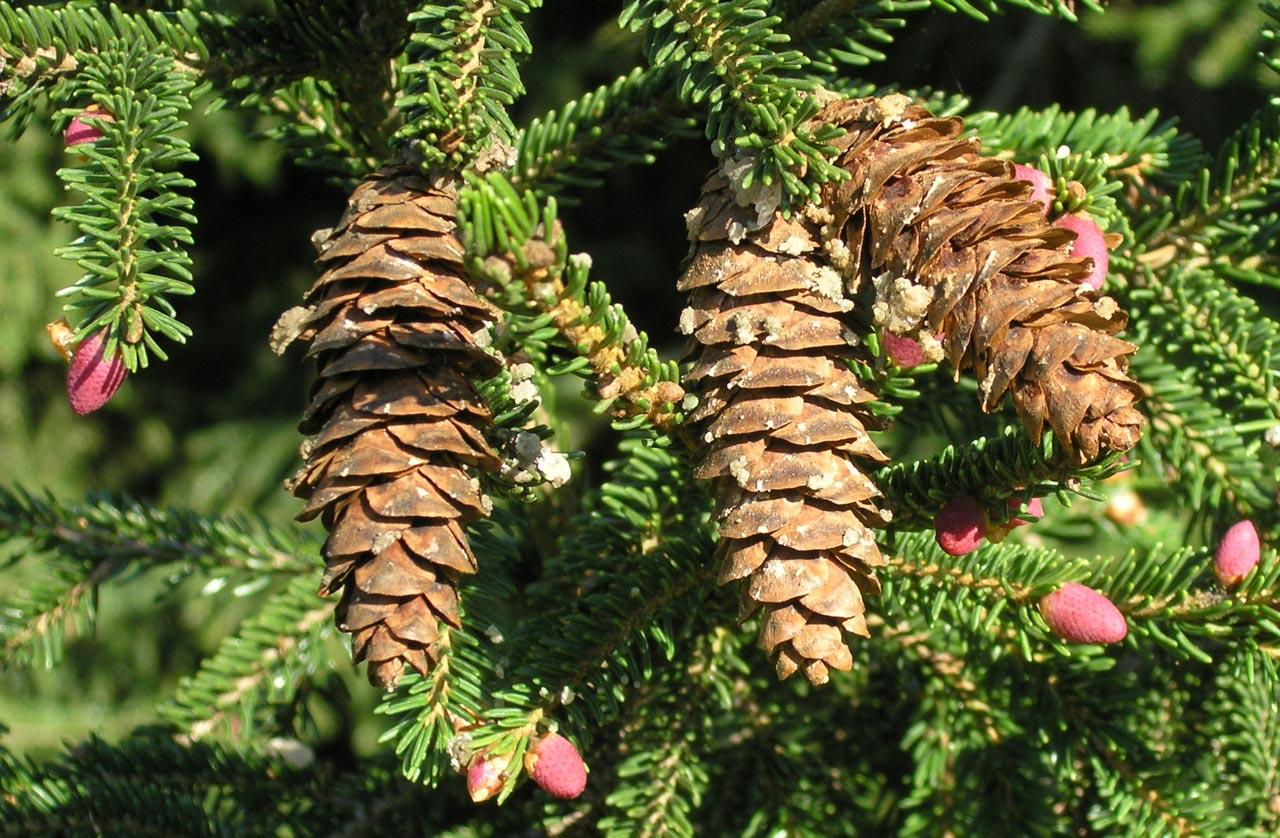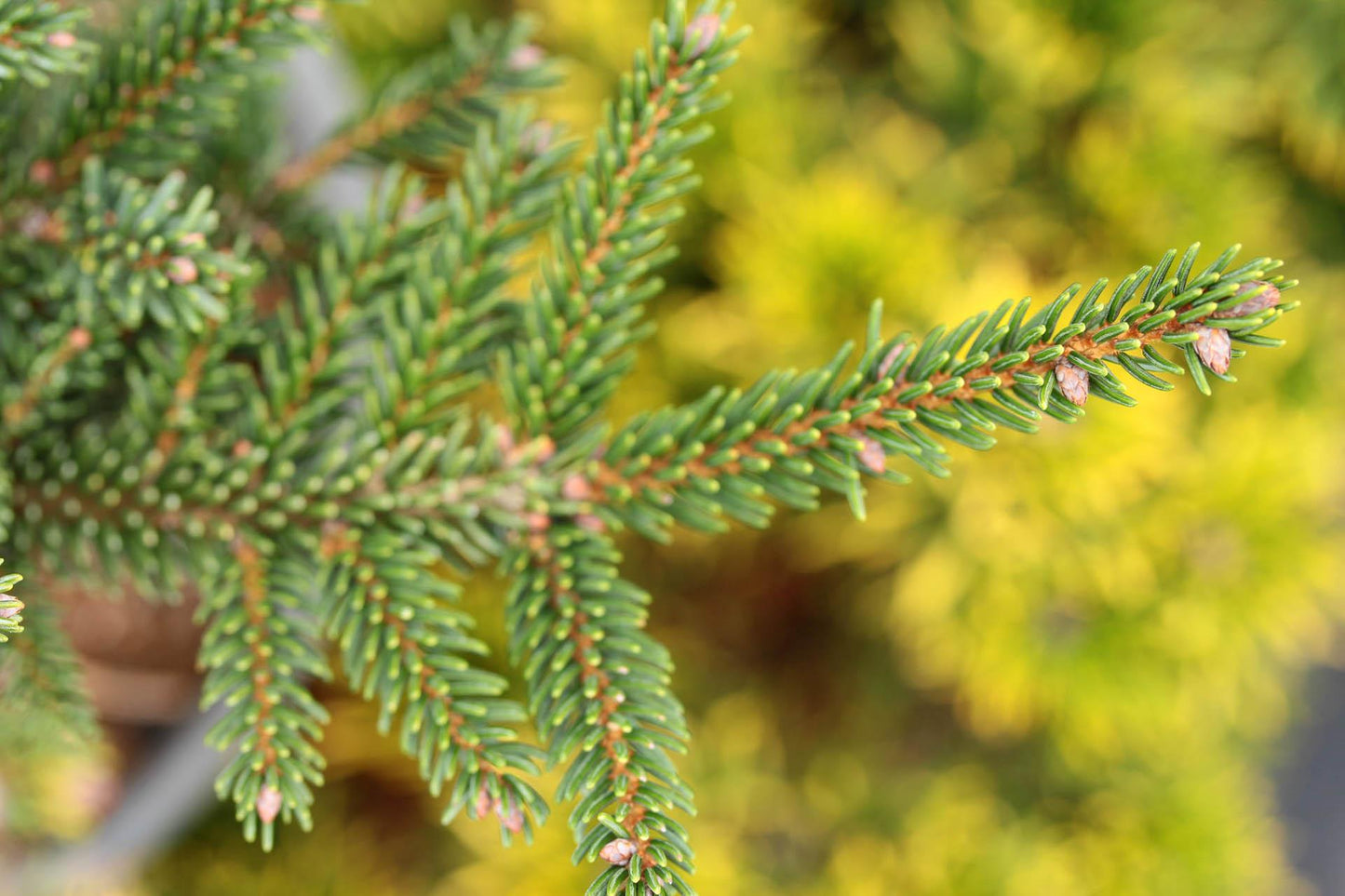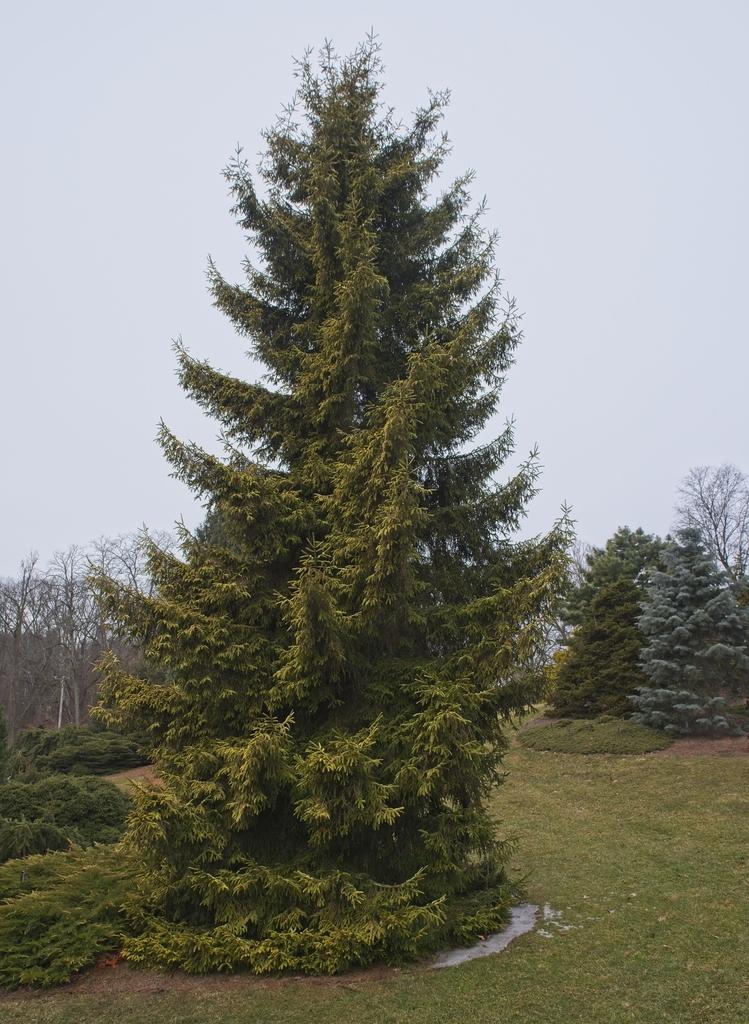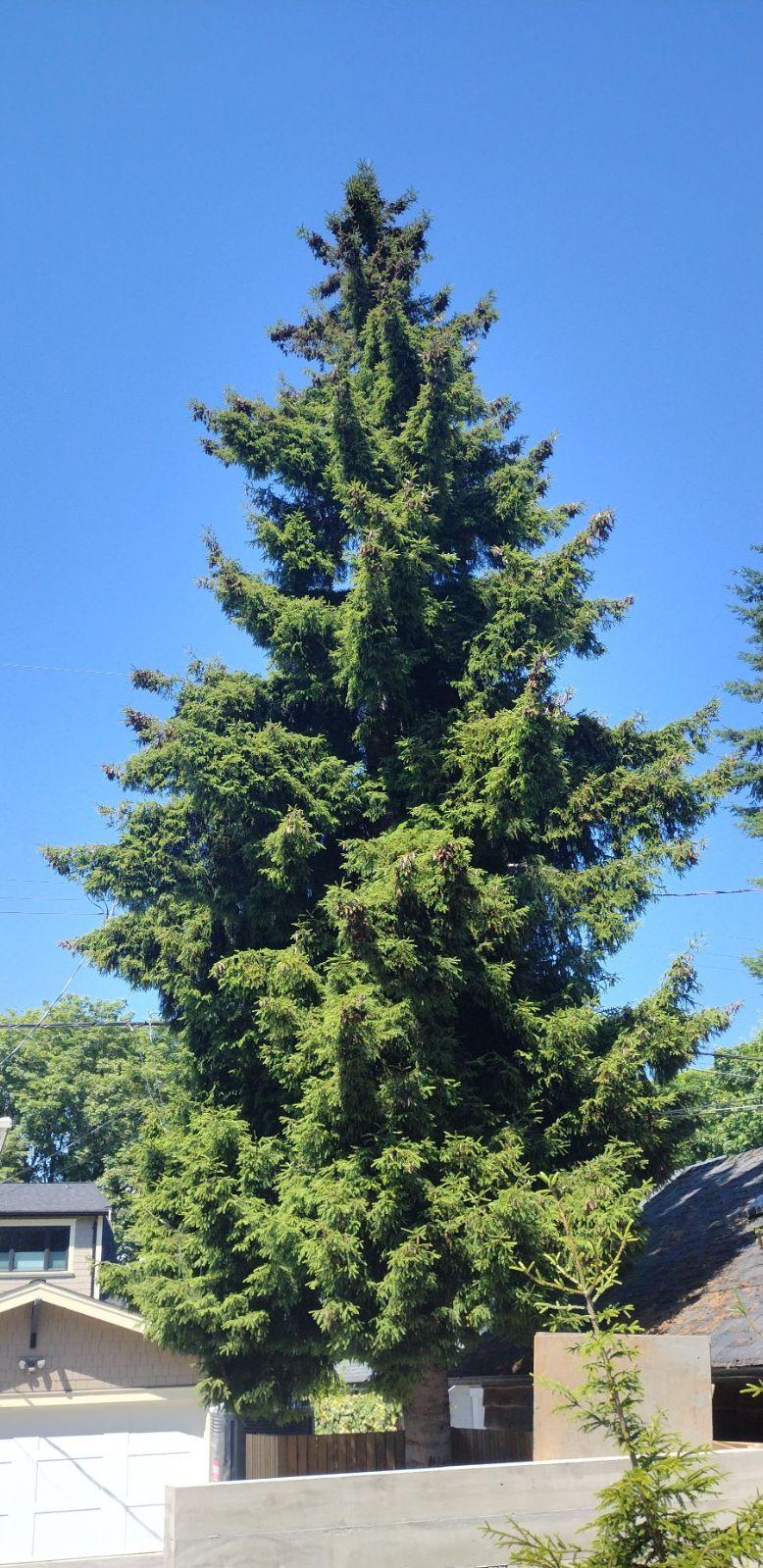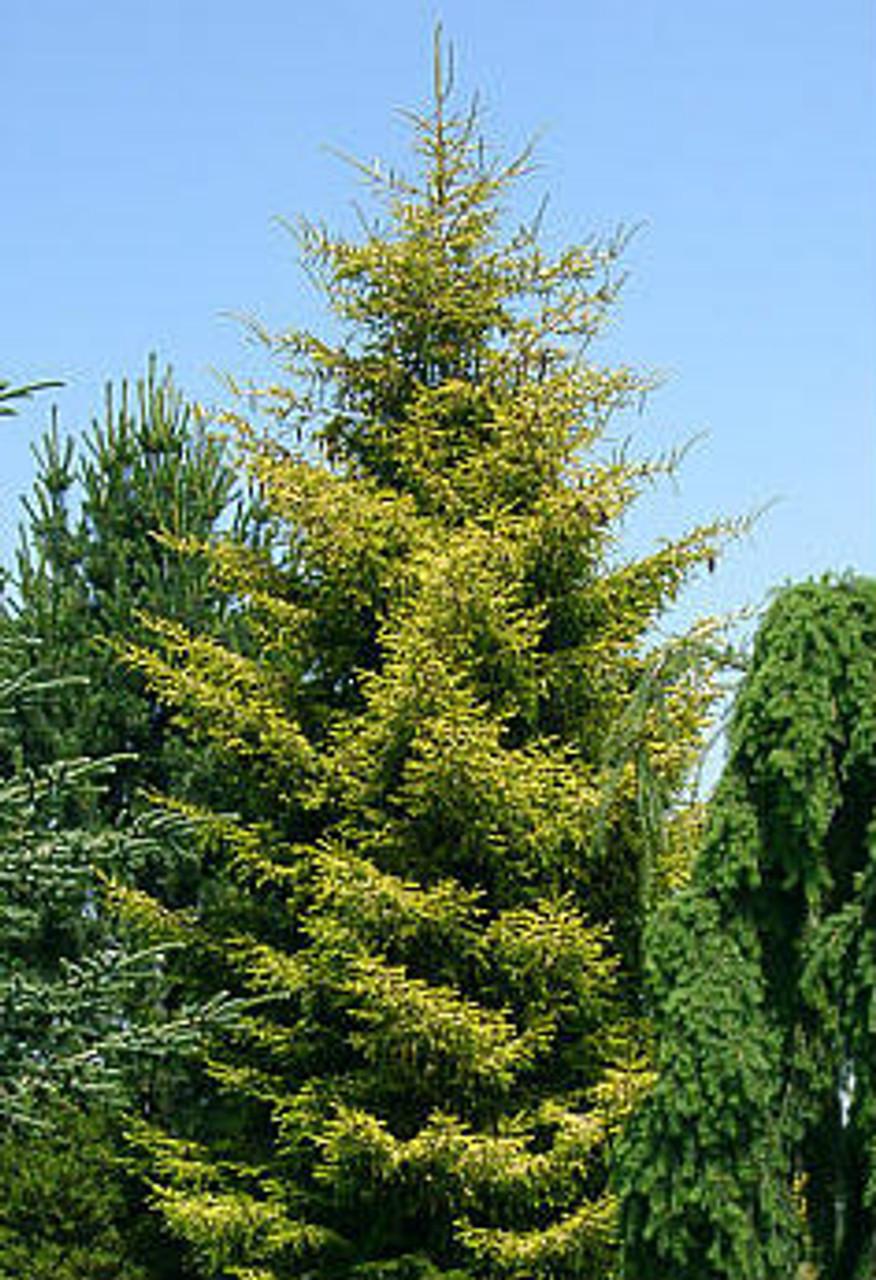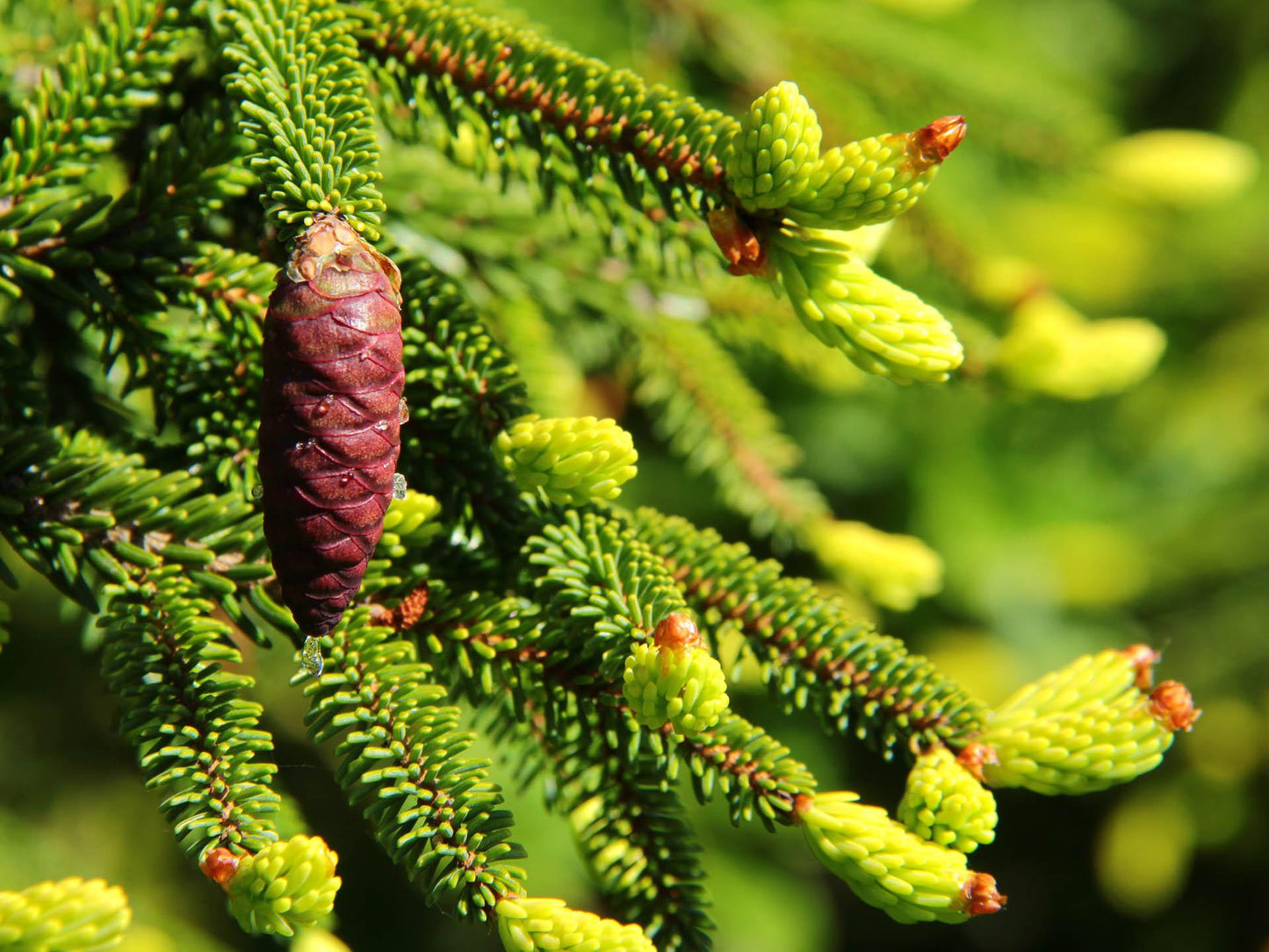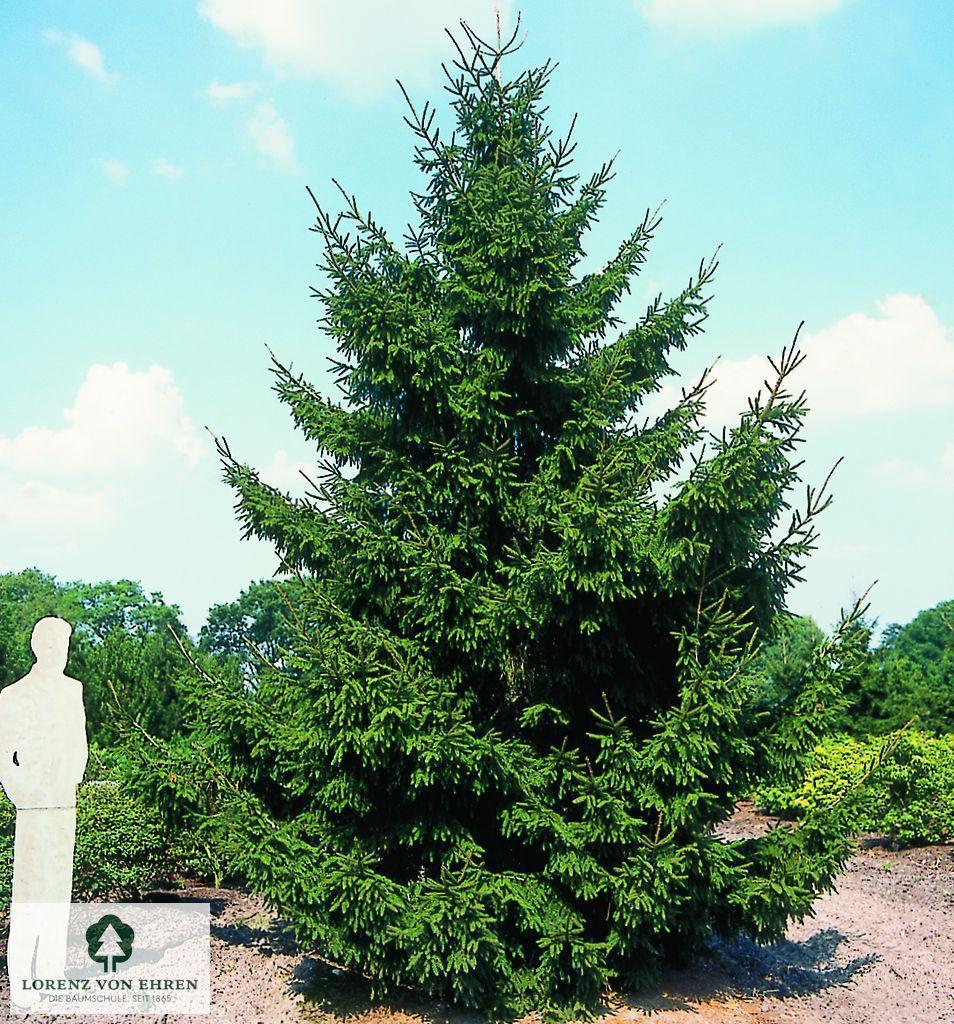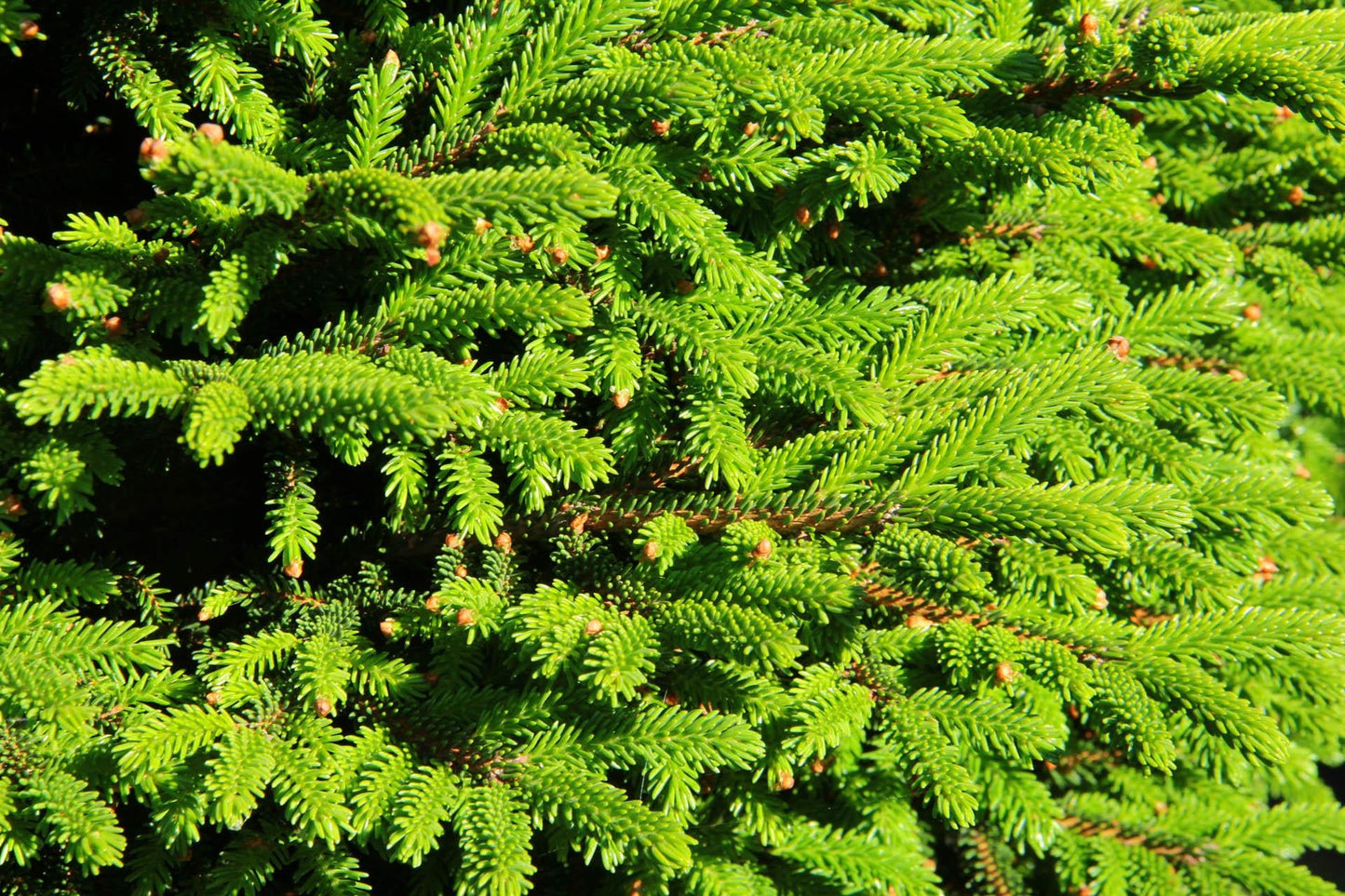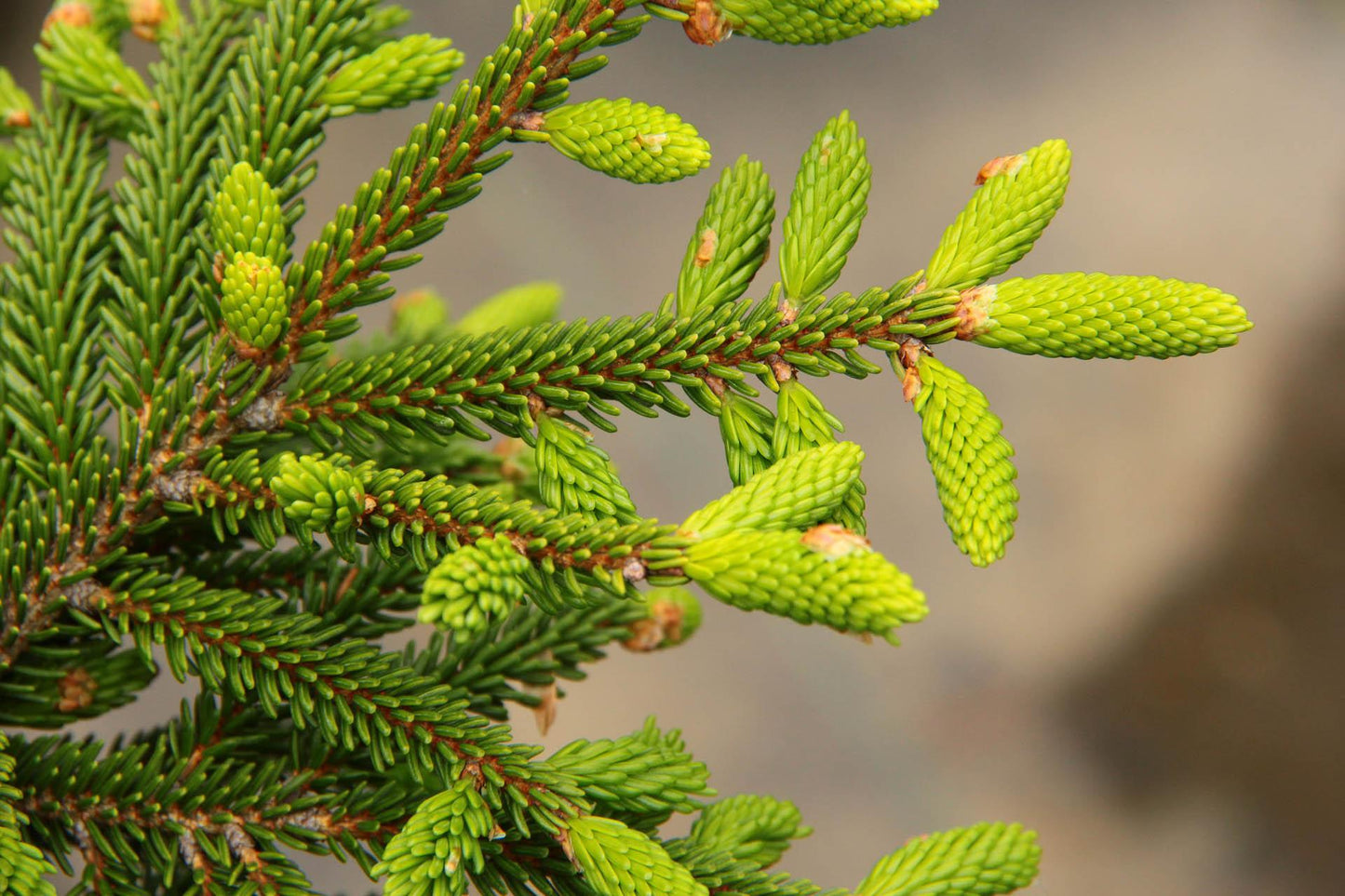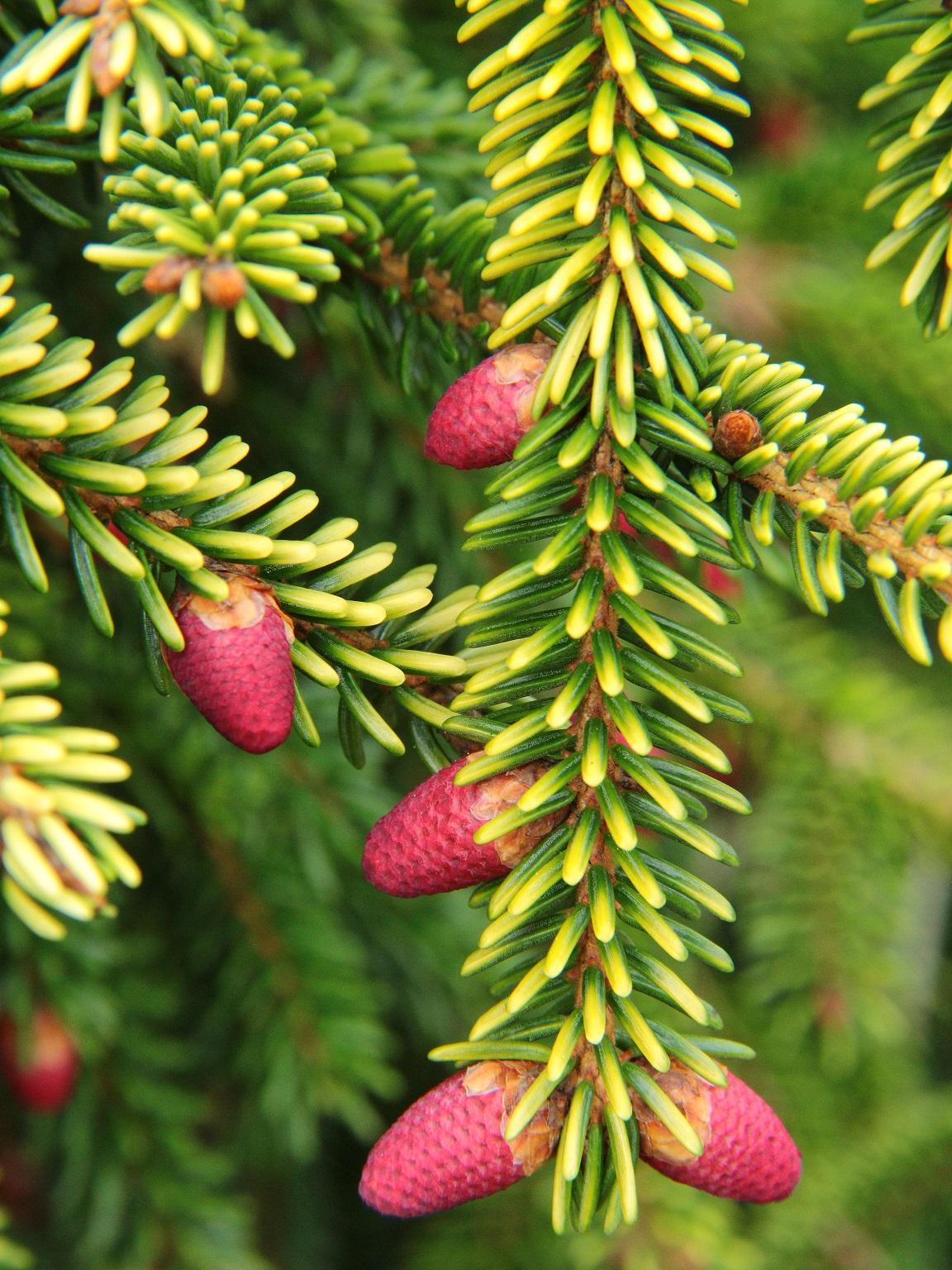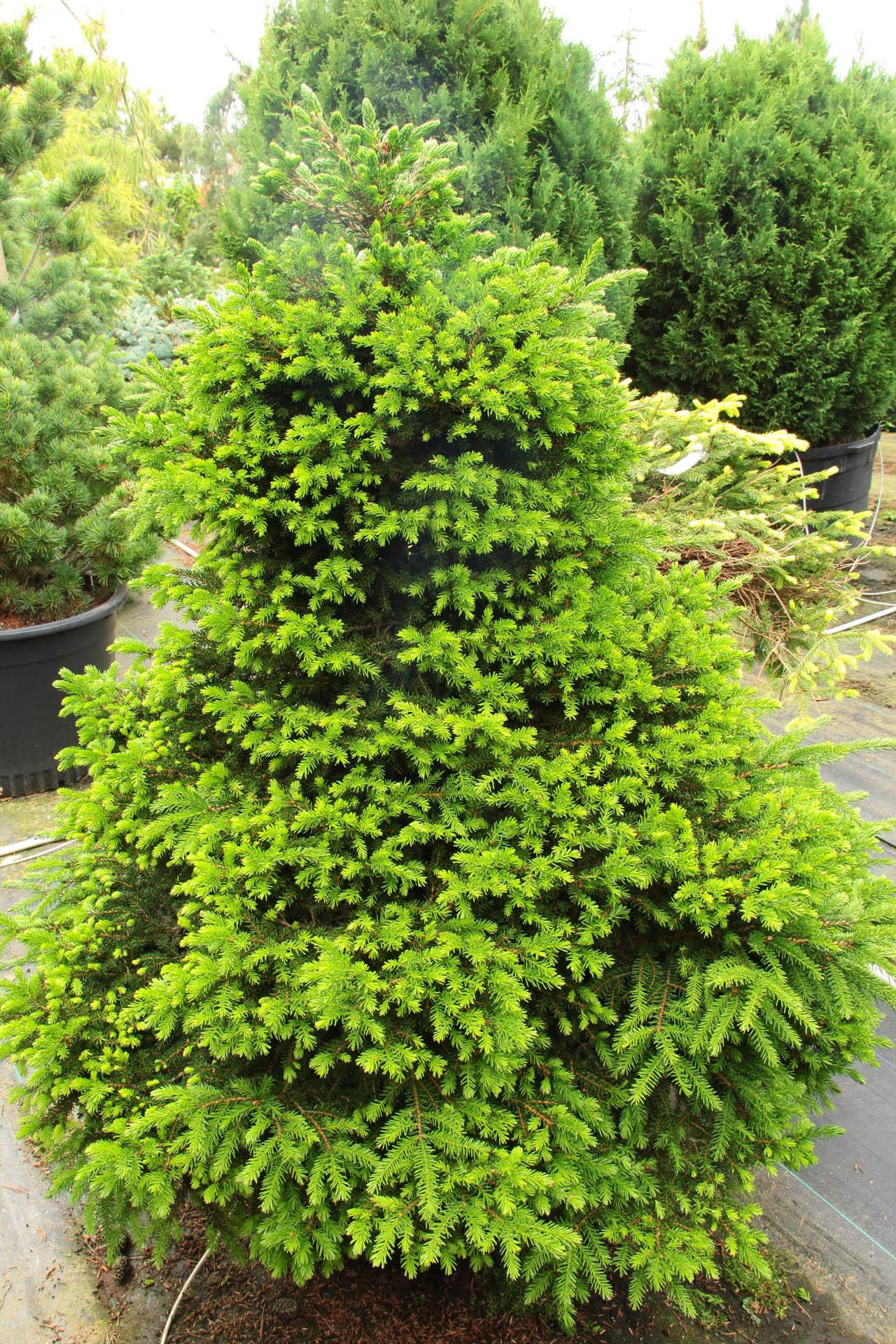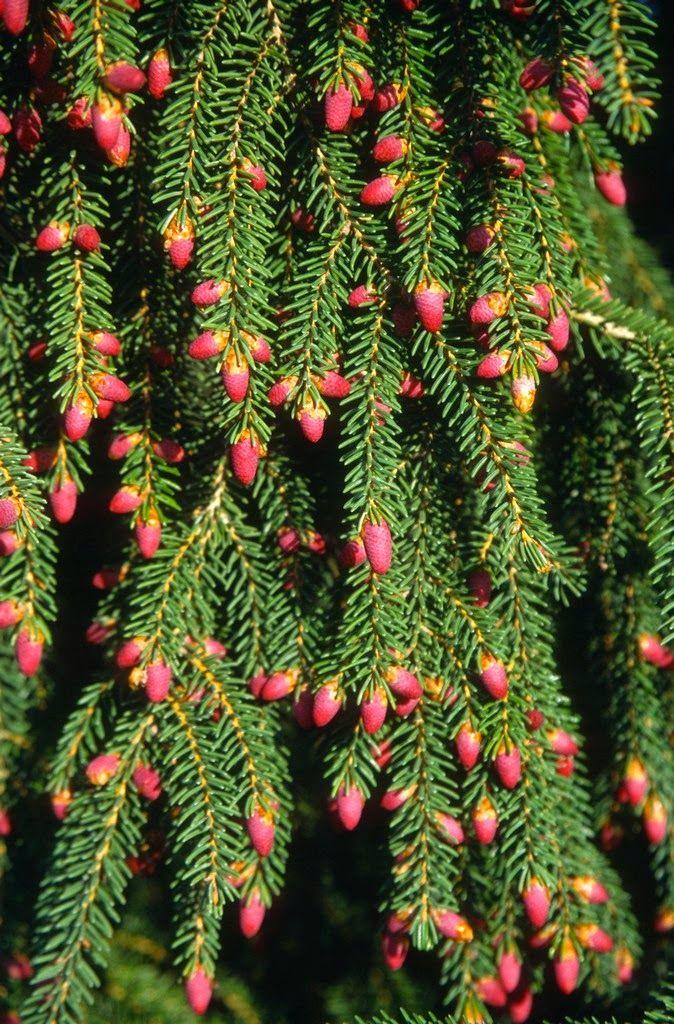1
/
of
14
Oriental Spruce 6/7' h B&B
Oriental Spruce 6/7' h B&B
Regular price
$1,350.00 USD
Regular price
$1,755.00 USD
Sale price
$1,350.00 USD
Unit price
/
per
SKU:NTE0540-RedCrocus
Couldn't load pickup availability
Picea orientalis
Description
The Oriental Spruce, or Picea orientalis, is a majestic evergreen tree native to the Caucasus Mountains and northeastern Turkey. Known for its dense, dark green foliage and graceful, pyramidal shape, it is a popular choice for ornamental landscapes and large gardens. Its needles are shorter and softer than those of other spruce species, making it an attractive and tactile addition to any garden.
Suggested Uses
Ideal for use as a specimen tree, in mixed borders, or as a windbreak. Its dense foliage provides excellent privacy screening and habitat for wildlife.
Plant Details
-
 Botanical Name: Picea orientalis
Botanical Name: Picea orientalis -
 Common Name: Oriental Spruce
Common Name: Oriental Spruce -
 Size & Growth: 50-60 feet tall, 20-25 feet wide
Size & Growth: 50-60 feet tall, 20-25 feet wide -
 Hardiness Zones: 4-7
Hardiness Zones: 4-7 -
 Foliage Type: Evergreen
Foliage Type: Evergreen -
 Bloom Time: Non-flowering
Bloom Time: Non-flowering -
 Growth Rate: Slow to moderate
Growth Rate: Slow to moderate -
 Light Requirements: Full sun to partial shade
Light Requirements: Full sun to partial shade -
 Attracts Pollinators: No
Attracts Pollinators: No -
 Indoor Friendly: No
Indoor Friendly: No -
 Container Friendly: No
Container Friendly: No -
 Deer Resistant: Yes
Deer Resistant: Yes -
 Pet Warning: Non-toxic
Pet Warning: Non-toxic -
 Fragrant: No
Fragrant: No -
 Cut Flower: No
Cut Flower: No -
 Grows Well With: Other conifers and shade-tolerant perennials
Grows Well With: Other conifers and shade-tolerant perennials
Care Tips
-
 Planting Instructions: Plant in spring or fall, ensuring the root ball is level with the soil surface.
Planting Instructions: Plant in spring or fall, ensuring the root ball is level with the soil surface. -
 Soil Moisture: Keep soil consistently moist, especially during dry spells.
Soil Moisture: Keep soil consistently moist, especially during dry spells. -
 Soil Type: Prefers well-drained, acidic to neutral soil.
Soil Type: Prefers well-drained, acidic to neutral soil. -
 Humidity: Tolerates a range of humidity levels.
Humidity: Tolerates a range of humidity levels. -
 Pruning Instructions: Minimal pruning required; remove dead or damaged branches in late winter.
Pruning Instructions: Minimal pruning required; remove dead or damaged branches in late winter. -
 Winter Care: Mulch around the base to protect roots from extreme cold.
Winter Care: Mulch around the base to protect roots from extreme cold. -
 Planting Depth: Plant at the same depth as the nursery container.
Planting Depth: Plant at the same depth as the nursery container. -
 Fertilization: Fertilize in early spring with a balanced, slow-release fertilizer.
Fertilization: Fertilize in early spring with a balanced, slow-release fertilizer. -
 Special Care: Protect young trees from strong winds to prevent damage.
Special Care: Protect young trees from strong winds to prevent damage.
Share
